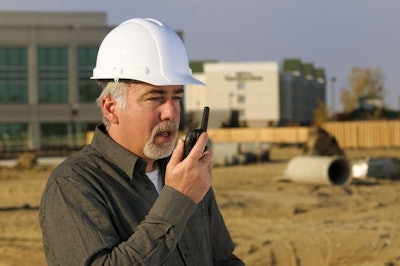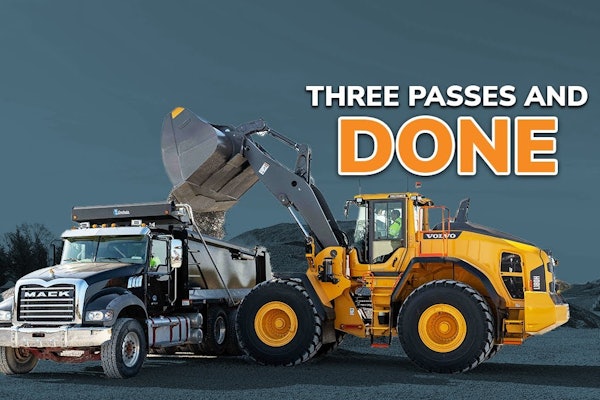
Does your jobsite use cell phones? They’re convenient and often multi-functional. (Workers can even calculate how much asphalt a job requires, thanks to the availability of several apps.)
But according to Motorola reseller Forestry Suppliers, a mobile phone may not be the best option for communication on the jobsite. The better choice, the company argues, may be two-way radios.
Here are five benefits of using two-way radios instead of mobile phones:
1. Service during emergencies. Cell service towers and landlines may fail during an emergency or disaster. However, two-way radios will continue to work during those situations. Additionally, all workers can be contacted at once, as opposed to dialing individual phone numbers via phone.
2. Lightweight durability. Two-way radios are designed to be lightweight and long-lasting. While some phones may require a protective case for use on the jobsite, two-way radios are often built to military and IP specifications, so they are less likely to crack or break when dropped. They are also designed with long battery life, with many models able to continue operating for 12-26 hours.
3. Cost effective. Two-way radios cost less than cell phones. There are no monthly fees, service contracts or calling minutes. Also, several workers can share a radio, cutting costs by avoiding the need to issue one per employee.
4. Communication clarity. Unlike many cell phones, two-way radios are designed to offer clear communication in most conditions. They often include features that reduce wind noise and allow resistance to vibration, extreme temperatures and wet conditions.
5. Ease of use. Two-way radios feature touch-button talk communication, creating a simple means of communication. Some models also include cloning capabilities, which simplify the process of copying radio settings.









